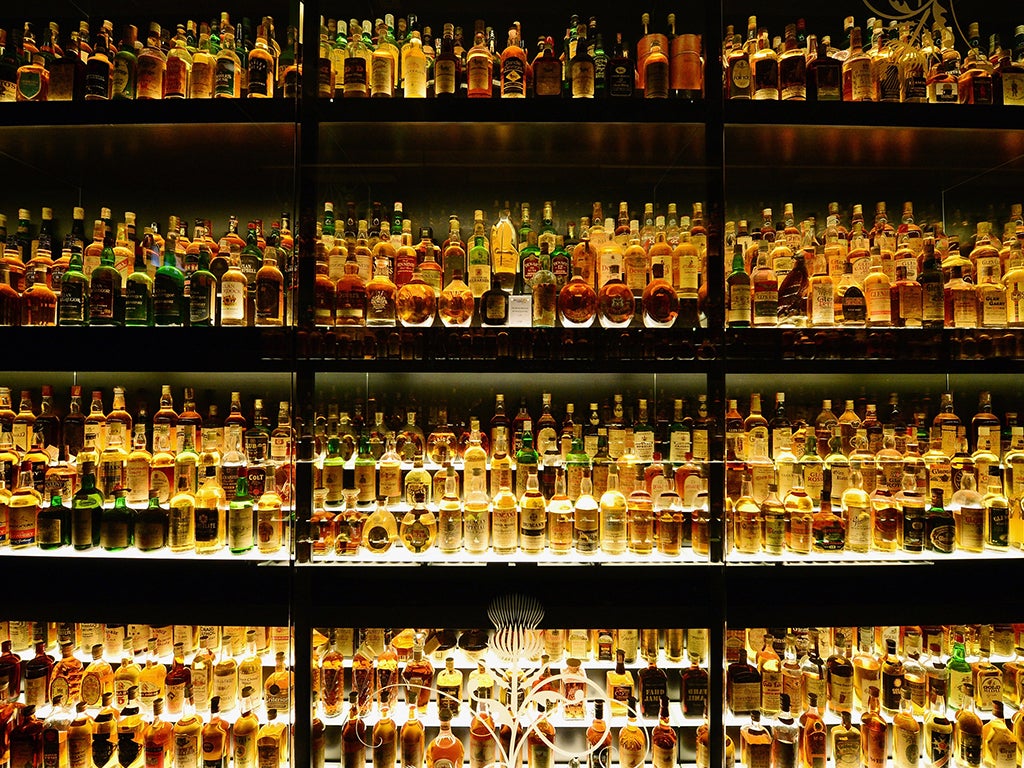Long held up as the greatest whisky, Scotch is facing fierce competition for its crown
The 'best whisky in the world' prize was recently won by Japanese single malt, with Scottish distilleries missing out on the top five spots. Has Scotch had its day?

Your support helps us to tell the story
From reproductive rights to climate change to Big Tech, The Independent is on the ground when the story is developing. Whether it's investigating the financials of Elon Musk's pro-Trump PAC or producing our latest documentary, 'The A Word', which shines a light on the American women fighting for reproductive rights, we know how important it is to parse out the facts from the messaging.
At such a critical moment in US history, we need reporters on the ground. Your donation allows us to keep sending journalists to speak to both sides of the story.
The Independent is trusted by Americans across the entire political spectrum. And unlike many other quality news outlets, we choose not to lock Americans out of our reporting and analysis with paywalls. We believe quality journalism should be available to everyone, paid for by those who can afford it.
Your support makes all the difference.When the politicians in Scotland were making a case for Scottish independence, you would have heard them boast quite rightly of a country rich in natural resources, rich in history and rich in entrepreneurialism. The television, radio, golf, Bovril, the flushing toilet and penicillin can all trace their inception back to a Scotsman.
Hot on the heels of TV and golf comes Scotland's other major export - Scotch whisky. Loved the world over, this liquid gold is seeing a growth in profile with the likes of the newly launched Haig Club, a partnership between mega-distillers Diageo, uber-brand David Beckham and star-maker extraordinaire, Simon Fuller. Similarly, high-end luxury whisky brand The Macallan has recently unveiled its equally impressive partnership with photography legend, Mario Testino, all adding to Scotch’s rising stock.
With demand in certain key emerging markets having risen significantly over the past decade (although there is a sales decline in the first half of this year to around £1.77 billion), it is very much seen as the go-to status drink. Wherever a single malt Scotch is to be found, either sitting proudly on a back bar or nestling in the drinks cabinets of the rich, famous and influential, the category is a glowing advert for its country of origin.
But it is not just Scotland that makes whisky and last week, Jim Murray, a whisky writer who self-publishes his ‘Whisky Bible’ annually, has, for the first time, left out Scotch whisky from his top five of the year (with a Japanese whisky hitting the top spot.) Although this has dropped something of a hand grenade into the whisky category, it is of course just one man’s viewpoint. So is it a fair one?
With its own set of rules and regulations, Scotch is highly protected. Single malt Scotch whisky is made from just barley, water and yeast and must be matured for a minimum of three years in oak casks in Scotland. Single grain whisky (of which Haig Club and Girvan are the only two current mainstream examples) is produced from any grain (usually maize), yeast and water, and must also be matured for the same length of time, with a blended Scotch whisky being a mixture of the two styles.
Outside of Scotland however, the rules are a little more relaxed (although to be called whisky in the EU, a three year minimum maturation in oak must be observed) and this gives a bit more freedom. But with freedom comes great responsibility... and varied results.
Take Japan for example. With over 90 years of whisky making heritage, inspired by Scottish techniques, the country now has around eight working whisky distilleries, with the drinks giant Suntory owning two of the most popular, Yamazaki and Hakushu. The success story of Japanese whisky is nothing new and it has been topping polls for over a decade, especially the World Whiskies Awards, where it has a consistent presence year on year.
Over in Ireland, whiskey brands such as Redbreast and Green Spot are gaining recognition as more premium alternatives to the ubiquitous Jameson and Bushmills.
Even Tasmania has seven whisky distilleries - the likes of the Overeem brand, made at the Old Hobart Distillery is now stocked by Selfridges and graces the prestigious back bar at Claridge’s. Also, and whisper it quietly, the English are even at it - from Norfolk to the Cotswolds and even down in Cornwall.
But a rising tide floats all boats and as the cachet of Scottish-made whisky rises, so do the boats in the rest of the sea, but of course, it doesn’t mean they are all super-yachts; there are some much smaller, well crafted vessels, but equally a few knackered old fishing boats in there too...
Let’s not forget that a Scotsman invented the TV, but you probably wouldn’t buy a Scottish TV nowadays. Japanese? Yes. As for whisky... we’ll take quality, wherever it comes from - and at the moment, that is as likely to be from outside Aberdeen as it is from outside Osaka.
Joel Harrison and Neil Ridley are award winning spirits writers and presenters. Their new book, Distilled, is out now on Mitchell Beazley Publishing
Join our commenting forum
Join thought-provoking conversations, follow other Independent readers and see their replies
Comments